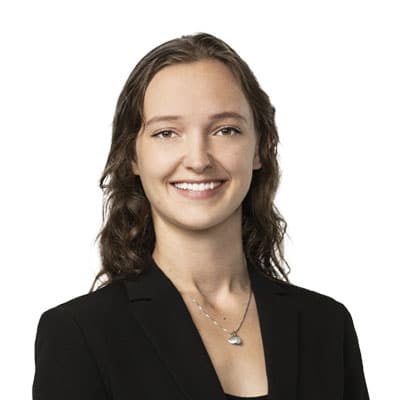High Range Drink Driving (NSW)
The offence of driving with high range prescribed concentration of alcohol (PCA) under section 110(5) of the Road Transport Act 2013 is committed when a person drives a motor vehicle on a road or road-related area with a blood alcohol content (BAC) of more than 0.15 in their breath or blood. This article outlines the offence of high range drink driving in New South Wales and the penalties that apply.
This offence is treated very seriously by the courts, particularly where a person has had prior drink driving offences. A first high range drink driving offence attracts a maximum fine of 30 penalty units and/or imprisonment for 18 months. A second or subsequent offence attracts a fine of up to 50 penalty units and/or two years imprisonment. The offence is also subject to a mandatory disqualification period and interlock order.
In determining the sentence for a high range drink driving offences, the court is required to have regard to a guideline judgment that provides guidance to the court about the range of appropriate sentences for offences of this kind.
Disqualification Periods
The Road Transport Amendment (Mandatory Alcohol Interlock Program) Act 2014 imposes a mandatory disqualification period for a high range drink drive offence, which varies depending on whether it is the offender’s first or second offence.
For first offences, the minimum disqualification period is six months with a maximum of nine months, where an interlock order is also made. Where an interlock exemption order is made, the automatic disqualification period is between 12 months and three years.
For second or subsequent offenders, the minimum disqualification period is nine months, and the maximum is 12 months where an interlock order is also made. Where an interlock exemption order is made, an automatic disqualification period of five years will be imposed if the offender committed another major offence in the last five years. If there has been no major offence within the last five years, the automatic disqualification period is three years. These disqualification orders are automatic upon conviction and the court does not have the power to impose a lesser, greater or conditional disqualification.
Mandatory Interlock Orders
Mandatory interlock orders automatically apply to high range drink driving offences.
Mandatory interlock orders involve two stages. They first disqualify a driver for a period of time between the minimum and maximum periods prescribed for the offence and then require the driver to obtain and serve a period of time on an interlock license. During this period, an interlock device is installed in their vehicle.
Unless a driver qualifies for an interlock exemption order, a mandatory interlock order will be automatically applied when they are convicted.
To receive an exemption from a mandatory interlock order, a person needs to satisfy Section 212 of the Road Transport Act 2013. This provision requires:
(a) That the person does not have access to a vehicle in which to install an interlock device, or
(b) That they have a diagnosed medical condition that prevents them from providing a sufficient breath sample and installing the device is not reasonably practical.
Guideline Judgment
Due to inconsistency amongst sentences for high range PCA offences, the Attorney General developed a guideline judgment to assist magistrates and judges to sentence offenders appropriately. The guideline judgment establishes the “ordinary offence” of high range drink driving to include circumstances where the offender:
- Drove to avoid inconvenience or not believing they were over the limit;
- Has a BAC reading produced on random breath test;
- Has prior good character;
- Has nil or minor offences on traffic record;
- Has a licence that was suspended on detection of the offence;
- Pleaded guilty;
- Poses little or no risk of re-offending; and
- Faces significant inconvenience by loss of licence.
The guideline judgment then distinguishes matters based on whether they are aggravated or more serious than an “ordinary offence” by considering other matters relating to the offender’s ‘moral culpability’, including whether the offender:
- Had a BAC over 0.15;
- Was driving in an erratic or aggressive manner;
- Caused a collision between a vehicle and any other object;
- Engaged in competitive driving or showing off;
- Posed a risk to the community, having regard to the distance they drive and other factors; and
- Put others at risk by their driving.
Will I Receive a Conviction for a High Range Drink Drive Offence?
In almost all cases, a person who is found guilty of high range drink driving will receive a conviction. The guideline judgment provides that it is rarely appropriate for an ordinary offence of high range drink driving to be dealt with by way of a non-conviction. Where the offence includes an increased level of moral culpability and/or is a second or subsequent offence, non-convictions are deemed “very rarely appropriate”.
If the court is convinced that it is expedient not to convict an offender, the matter may be dismissed under Section 10(1)(a) or with a Conditional Release Order without conviction under Section 10(1)(b) of the Crimes (Sentencing Procedure) Act 1999.
If a person has already received a non-conviction order within the last five years for any similar offence, Section 203 of the Road Transport Act 2013 prevents a non-conviction order from being available to them again.
If you require legal advice or representation in any legal matter, please contact Armstrong Legal.

This article was written by Sophie Ogborne
Sophie Ogborne has a Bachelor of Laws from University of Wollongong and a Graduate Diploma of Legal Practice from the College of Law. She was admitted to practice in New South Wales in 2020. Sophie has experience in criminal law, civil law, family law and in the criminal and equity divisions of the Supreme Court. Sophie now practices exclusively in...

